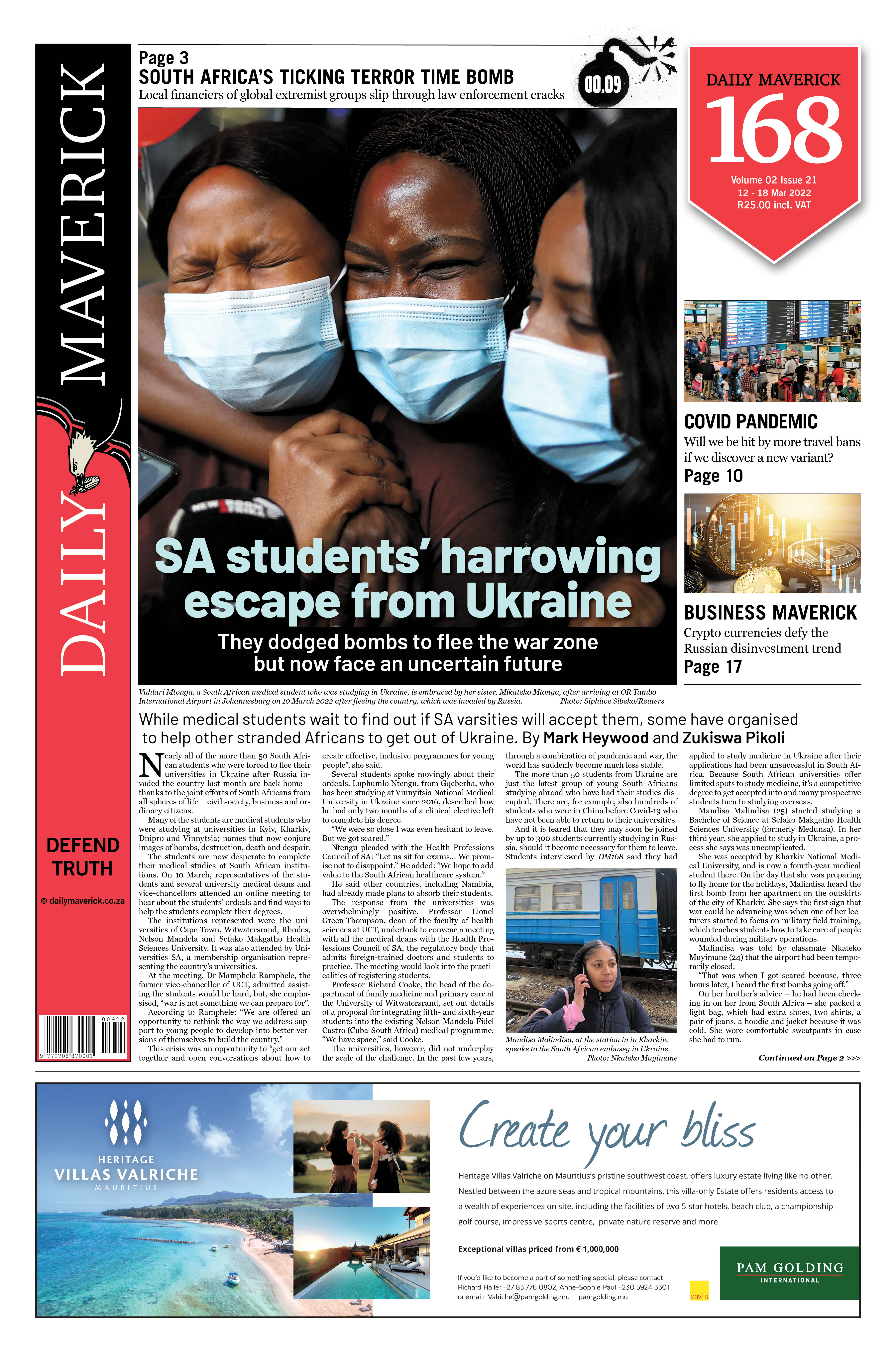Given that his academic performance at the end of Grade 7 was poor, the opportunity does not need to be spelt out. What is truly heart-warming is watching how, in a matter of weeks, this young person has blossomed and his mind expanded. One morning as we were driving along, he piped up with a question: “Mama Sasha, why is education so important?” I confess to being a little gobsmacked. After all, isn’t it obvious?
But to many of us, these questions and their answers are not obvious. So I rabbited on about how education develops critical thinking skills, hones communication skills and builds confidence – all of which leads to better education opportunities and job prospects down the line. But watching the exodus of people from Russia at the moment, it reminds me of something else I told him, which is that education gives you choices, which are essential in life. Without education, there are few choices and fewer opportunities.
As I watch the waves of human misery leaving Ukraine and, to an extent, Russia, what is clear is that education, skills and the income that comes with both provide a passport to freedom. Aside from desperate Ukrainians, thousands of Russians – from the elite and the skilled to ordinary middle-class people who run English-language schools, cinemas and restaurants – have left their homelands since the invasion of Ukraine began. In Ukraine, they fear the bombs, but in Russia, they fear the economic and political consequences of the war, which are already apparent. The rouble has devalued by 50%, the Russian stock market has collapsed, Western companies are pulling out in their droves, flights in and out of Russia have been cancelled, and banking has been severely curtailed. Educated Russians also fear the increasing militarisation of the Kremlin and further loss of personal freedom. There are restrictions on how much money you can draw, the internet has been curtailed, aggressive soldiers read messages on private cellphones and there is a growing reluctance to let people through the borders. Rumours about the imposition of martial law are growing.
None of this should be a surprise. Human capital has been fleeing Russia ever since Vladimir Putin ascended to the presidency in 2012. According to the Atlantic Council, a US think-tank, about 2 million Russians – out of a total population of about 145 million, it must be said – had left for Western democracies by 2018. While the figure might be slightly inaccurate it’s clear that not all Russians are leaving for political reasons.
Like South Africans or émigrés anywhere, Russians love their homeland but are driven to search for a better life for themselves and their families. Such a loss of skills has catastrophic implications for an economy.
And this emigration has sped up in recent years, as political repression has stepped up and the economy has stagnated. Remember the days when the Soviet Union produced some of the world’s best mathematicians and scientists, many of whom were Nobel Laureates?
Where is this talent now? We know the country has a working education system – it is a developed country, after all. But aside from the best hackers in the world, the tech skills seem a little invisible.
It’s all very well for the Kremlin to state that it wants to make Russia one of the world’s top five countries for scientific research and development by 2024. But placing techno hubs and start-up corridors all over the country is largely fruitless when innovation and debate are stifled. Clashing narratives, as it turns out, contribute to innovation when aired in a healthy environment. Yet Russia, despite sitting on a third of the world’s oil and gas reserves, has no Meta, Alphabet, Hitachi, Tencent or LG Electronics to brag about. That’s because the first people to leave a country are often the scientists – people whose inquisitive minds are drawn to the countries where they are free to grow.
In fact, Russia is the only developed country where the number of scientists has been decreasing for several years. Proof that skills move to where the environment is most fertile. So when a follow-up question from my young charge was, “Why is maths so important,” I could have kissed him. Choice, after all, is priceless. DM168
This story first appeared in our weekly Daily Maverick 168 newspaper which is available for R25 at Pick n Pay, Exclusive Books and airport bookstores. For your nearest stockist, please click here.



















 Become an Insider
Become an Insider
Comments - Please login in order to comment.